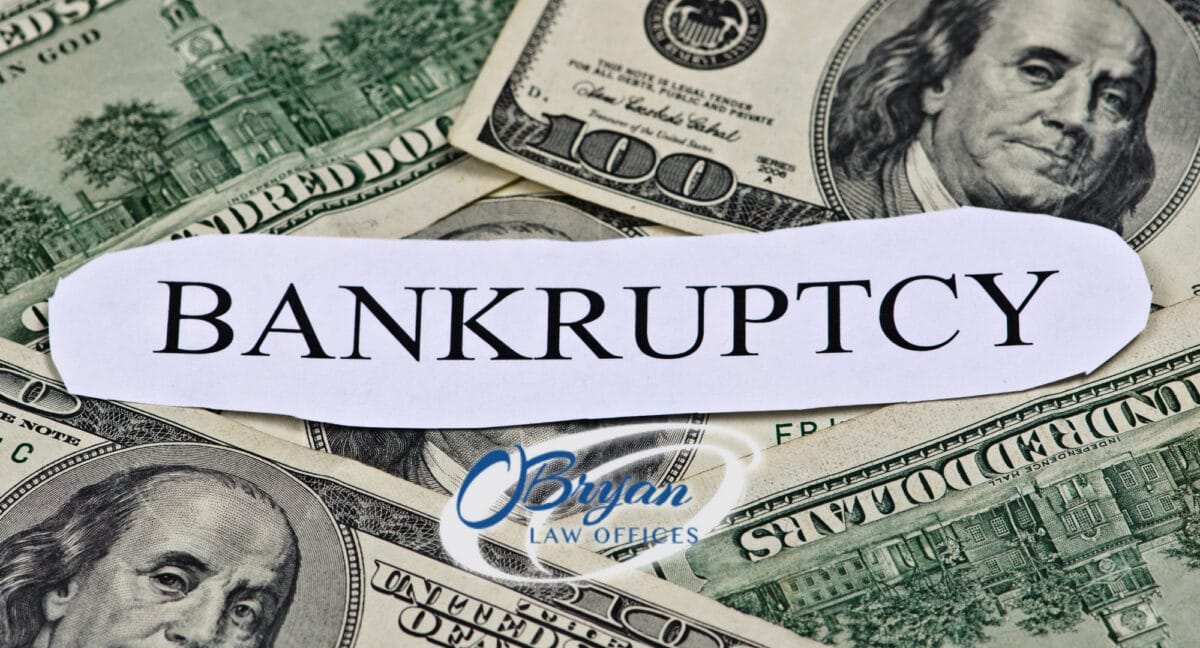How Often Can You File Bankruptcy?

How Often Can You File Bankruptcy?

You can declare for bankruptcy more than once in your lifetime. The number of times you can file bankruptcy is determined by the length of time since your last bankruptcy and the sort of bankruptcy you filed. At O’Bryan Law Offices, we’ll set you up with a Louisville bankruptcy attorney who can help you determine the best course of action for your situation. Read below to learn more.
How Often Can You Declare Bankruptcy?
How many times can you file bankruptcy if you’ve already done so? To begin with, there are no limitations on how many times a person can petition for bankruptcy relief. However, the number of times a person may get a bankruptcy discharge, or total debt relief, is limited.
Declaring bankruptcy might help you decrease or even erase your obligations. But even it comes at a cost. Bankruptcy can have a long-term negative impact on your credit score. This might make borrowing money or receiving loans more difficult in the future. It may also result in a significant rise in your insurance premiums. It may even impair your capacity to find work in some circumstances.
So, while bankruptcy can help you get out of debt, it’s not something you should do right away. In reality, bankruptcy should only be used as a last option. We can assist you if you believe you have reached your final resort and this is what you need to do. We’ll make this procedure as simple as possible for you and your family at O’Bryan Law Offices. We want to assist you in getting back on your feet, and we’ll go to any length to do so.
What Determines Bankruptcy Eligibility?
When it comes to filing multiple bankruptcy petitions, the most important factor is time. If you had your debts dismissed in a prior bankruptcy, you will have to wait a specific length of time before being eligible for another discharge.
The ability to file another bankruptcy and get a discharge is contingent on a number of variables.
- the types of bankruptcy previously filed
- the date the previous bankruptcy was filed
- whether the previous bankruptcy was discharged, dismissed, or dismissed with prejudice
When you are eligible for another discharge, the length of time you have to wait depends on whether you previously got a Chapter 7 or Chapter 13 discharge and the kind of bankruptcy you wish to file again.
What Happens When Debtors File Multiple Bankruptcy Cases?
While bankruptcy can help Kentucky citizens and others reorganize or eliminate debt, there are restrictions to how many times they can apply. Those who abuse the bankruptcy system egregiously may be prohibited from using it again once their cases are dismissed in some instances. Individuals who are allowed to file for bankruptcy more than once may only receive a limited automatic stay of creditor activity or none at all. Creditors may be able to contact a debtor, garnish earnings, or launch a lawsuit as a result of this.
If a stay is not automatically granted, a person may request one from a judge. It may also be possible to request an extension of a stay beyond the 30-day period following the filing of a case. A court will examine how many cases a person has filed in the previous year or several years when assessing their request. When deciding whether or not to grant or prolong a stay, he or she will look at the grounds why previous applications were dismissed.
Cases of bankruptcy can be dismissed for a variety of reasons, including failure to follow a repayment plan or a professional error. Finally, if a debtor’s circumstances have recently altered, an automatic stay may be imposed or prolonged.
Filing for bankruptcy may be an option for those wanting to restructure their obligations. Filing for Chapter 13 bankruptcy protection may allow a person to keep their home, car, or other valuables while paying off their debts. Reorganization bankruptcy filers generally make payments over three to five years, depending on their discretionary income. Any remaining debt balances after the payback term has ended may be dismissed.
How Often Can You File Bankruptcy Chapter 7 and Chapter 13?
When filing for bankruptcy as an individual, you’ll almost certainly have to choose between Chapter 7 and Chapter 13. We’ll go through the fundamentals of each of these below.
Chapter 7 Bankruptcy
If you have previously received a discharge in a Chapter 7 bankruptcy, you must wait eight years from the date of the prior case to file another Chapter 7 bankruptcy and receive a discharge.
The most common kind of bankruptcy filed by individuals is Chapter 7 bankruptcy. It’s also called liquidation or outright bankruptcy. This is when the court appoints a trustee to oversee the sale of your assets. Any valuable possessions you have may be sold to pay off your obligations. Although courts may provide exemptions for essentials such as your home, car, or retirement savings, this is not a certainty.
Any additional obligations are usually forgiven after your assets are sold. Medical expenses and credit card bills are examples of this. Student debts and taxes, for example, are not excluded and must be paid off eventually.
Chapter 7 bankruptcy is only available to people who have been determined by the court to be unable to repay their debts. The results of a means test are used to assess eligibility. The test compares your personal income to the state’s average income. It evaluates whether you have the financial means to repay all or part of what you owe after comparing the two. You are eligible for this form of bankruptcy if they find you do not have the financial means.
Chapter 7 will not prevent your house from being foreclosed on, but it will postpone it. The procedure for filing this sort of bankruptcy claim usually takes 3 to 6 months.
Chapter 13 to Chapter 13
If your debts were dismissed in a previous Chapter 13 case, you won’t be able to get a discharge in a future Chapter 13 until you file it at least two years after the first one. Because completing a Chapter 13 repayment plan and receiving a discharge normally takes three to five years, you may usually file for another Chapter 13 bankruptcy and be eligible for a discharge immediately after your first case is completed.
Chapter 13 bankruptcy restructures your debt rather than forgiving it. It allows you to preserve your assets while also giving you time to catch up on debt repayment. The court will create a payment plan for you, generally on a monthly basis, that permits you to pay off sections of your debt over time. The court might order you to keep to a strict budget in addition to structuring your payment arrangements. They can even double-check your expenditures to ensure you’re on track.
Anyone with an unsecured debt of less than $250,000 and a secured debt of less than $750,000 can file for Chapter 13 bankruptcy. You should also keep track of your tax filings. By providing you additional time and a plan to pay your housing expenses, Chapter 13 can help you avoid foreclosure.
On average, the full procedure takes 3-5 years to finish.
Chapter 7 to Chapter 13
If your first discharge was obtained through a Chapter 7 bankruptcy, you can apply for a Chapter 13 bankruptcy and receive a discharge if the case is filed at least four years after the first Chapter 7 bankruptcy was filed. Even if you are not eligible for a discharge, filing a Chapter 13 bankruptcy after getting a Chapter 7 discharge might still help you pay off priority obligations or catch up on missed mortgage or auto loan payments.
Chapter 13 to Chapter 7
Finally, if you got a discharge in a previous Chapter 13 bankruptcy, you must wait six years from the date of the Chapter 13 to apply for and receive a discharge in a future Chapter 7. There is, however, an exception to this rule. The six-year rule does not apply if you paid back the following in Chapter 13:
- all of your unsecured debts
- at least 70% of your unsecured debts and your plan was proposed in good
Contact Louisville Bankruptcy Attorneys at O'Bryan Law Offices
O’Bryan Law Offices is Louisville, Kentucky’s top bankruptcy law firm. If you are considering filing for bankruptcy, you’ve come to the right place. You don’t need to suffer alone through the stress of increasing debt pressure. Our firm combines an in-depth understanding of bankruptcy law and strategy with individualized, compassionate client service.
In addition to helping you get relief from overwhelming debt, we can also assist you with problems like mortgage foreclosure, tax obligations or small business restructuring. If you need legal financial help, contact O’Bryan Law Offices today. Fill out our form or give us a call at 502-339-0222 to see how we can help you get your life back on track.






